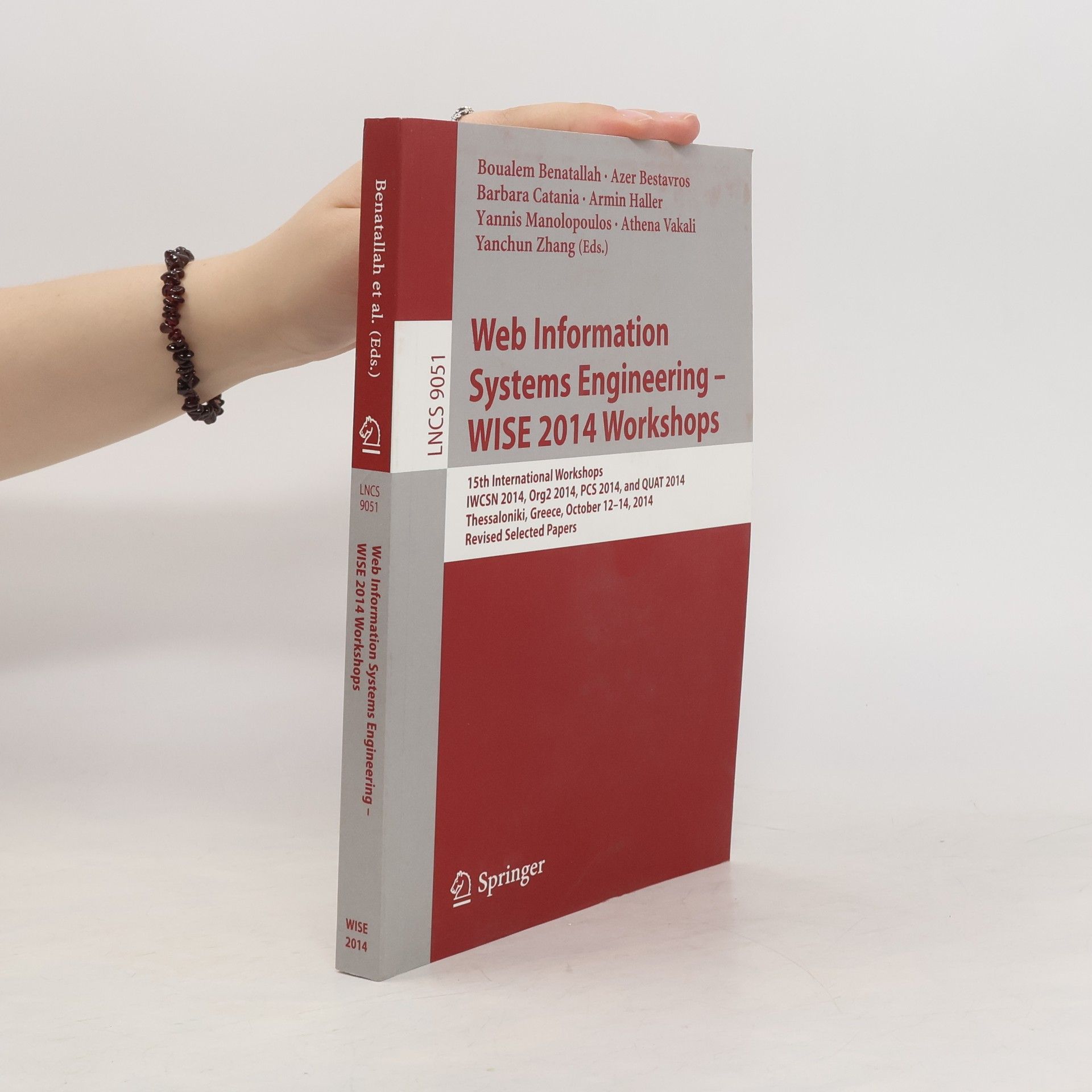Web Information Systems Engineering - WISE 2014 Workshops
- 271pages
- 10 heures de lecture
This book constitutes the revised selected papers of the combined workshops on Web Information Systems Engineering, WISE 2014, held in Thessaloniki, Greece, in October 2014. The 19 selected papers presented were carefully revised and report from the four computational social networks, IWCSN 2014, enterprise social networks, Org2 2014, personalization and context-awareness in cloud and service computing, PCS 2014, and data quality and trust in big data, QUAT 2014.
